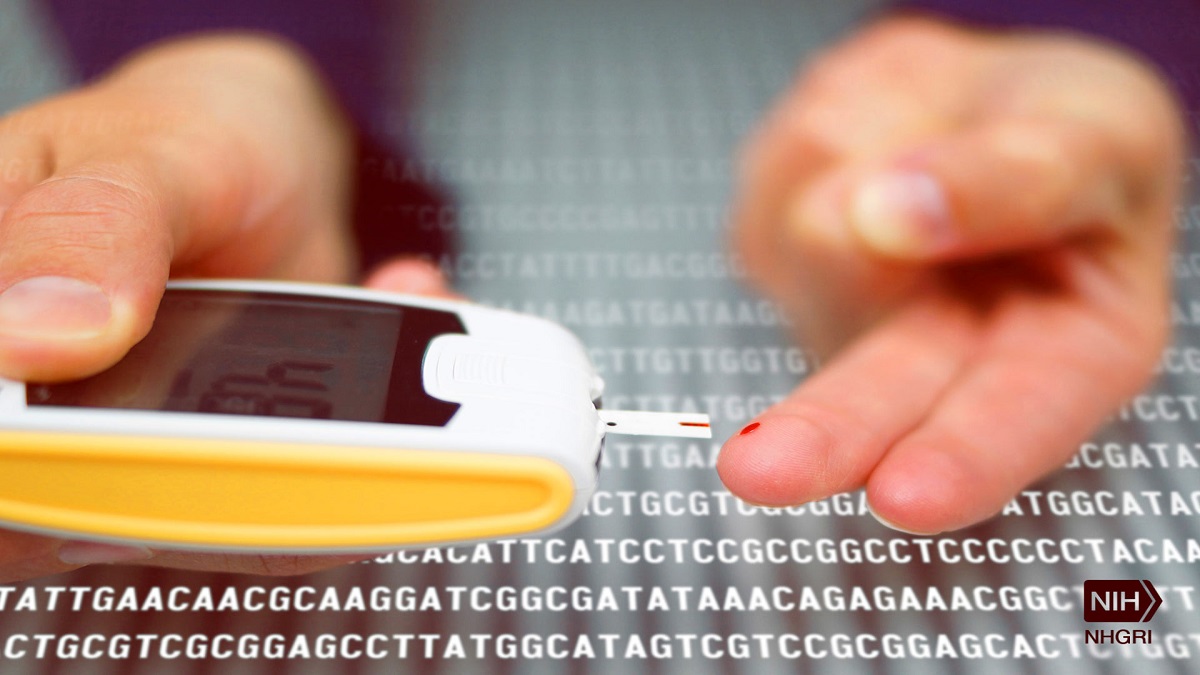Type 2 diabetes, also known as adult-onset or non-insulin-dependent diabetes, is a chronic illness that can last a lifetime and is caused by either insufficient insulin production by the body or improper insulin response by the body’s cells. Because of these two issues, not enough insulin is produced to transport blood glucose into cells. The body’s cells are unable to operate correctly when glucose accumulates in the blood rather than entering the cells.
People with type 2 diabetes are more likely to develop it if they are older than 40, overweight, or have a family history of the disease. Black, Hispanic/Latino, American Indian, Asian American, and Pacific Islander people all have a higher risk of developing type 2 diabetes than other racial and ethnic groups. However, type 2 diabetes has become more common in adolescents and young adults over the past ten years.
Is it Reversible
According to recent studies, type 2 diabetes cannot be cured but can be partially or completely reversed, with glucose levels returning to normal or to pre-diabetic range. Significant weight loss is the main method through which persons with type 2 diabetes are able to go into remission.
We refer to remission rather than a cure because it is just temporary. The genetic components underlying the person’s predisposition to diabetes are still present, despite the damage to the beta cells. The illness process gradually returns, and the beta cells continue to be destroyed. A stressor from the environment, such weight gain, might reactivate the symptoms of glucose intolerance.
When a person’s A1c is below 48 mmol/mol or less than 6.5% after stopping their diabetic medication for three months or more, they are said to be in diabetes remission.
Remission, however, does not signal the end of diabetes. To maintain remission, you’ll need to control your blood sugar levels with lifestyle changes. To make sure levels are suitable, you’ll also need to show up to follow-up appointments. You might need to take more medication if your glucose levels start to rise again.
Patients who were glucose toxic before treatment may also enter remission. Glucose toxicity can cause the beta cell to momentarily stop producing insulin. Reduced glucose levels trigger the beta cells to start working once more. This is frequently observed in individuals with chronically untreated diabetes whose A1c level is acutely raised. They might need insulin for a brief amount of time, but after the glucose level is brought down and the beta cells begin to operate once again, they can frequently go back to medications or lifestyle changes.
Although lifestyle changes are a common part of standard medical care, gastric bypass surgery is responsible for many remissions. These people frequently have their high glucose levels completely reversed, sometimes for years. Even before there is significant weight reduction, the surgery-induced change in hormonal environment improves glucose metabolism.
Those whose BMI and medical problems put them at risk for major health issues often consider gastric bypass surgery. Most people can control type 2 diabetes through behaviour modification (at first with or without drugs) and lifestyle changes. By losing just 7 to 10 percent of bodyweight, the body’s cells will be better able to respond to insulin because excess weight raises insulin resistance.
Finding a meal plan and an exercise routine that work best for one’s lifestyle is the key to losing weight. The finest meal plan is one that will guide you in making lifelong healthy eating decisions. You may still eat and enjoy your favourite foods with a meal plan; it’s not a rigorous diet. Instead, it provides you with direction to help you develop a healthy eating pattern.
You could be well on your way to managing your diabetes by making some key lifestyle adjustments. It’s normal for many people to revert to their old behaviours, so don’t be disheartened if you do.
Read More: Can Intermittent Fasting Decrease Your Type 2 Diabetes Risk? – About Pakistan
How can diabetes be Reversed?
Lose Weight:
The greatest data we currently have points to weight loss as the primary factor in putting type 2 diabetes into remission. If you lose weight as soon as feasible after receiving a diabetes diagnosis, remission is more likely. However, we are aware of individuals who, 25 years after being diagnosed, have managed to put their diabetes in remission.
If you lose a significant amount of weight—15 kg (or 2 stone 5 pounds)—quickly and safely after being diagnosed with diabetes, your diabetes is more likely to enter remission.
The fact that not everyone who loses this much weight will be able to put their diabetes into remission is crucial to understand. Even if it doesn’t result in remission, decreasing 15 kg has numerous health advantages. According to research, obtaining assistance to drop even 5% of your body weight can have a significant positive impact on your health. Losing excess weight may result in:
• fewer prescriptions,
improved blood sugar levels,
and a decreased risk of problems.
Get active
Starting an exercise programme is crucial for general health because it will aid in weight loss and the beginning of symptom reversal. Ask your medical staff to assist you in creating a strategy while keeping the following in mind:
Set realistic goals if you are new to exercising and start out slowly. For instance, aim for a few quick walks each day and gradually increase the length and effort.
Swift walking is an excellent form of exercise. A quick stroll is simple to perform and needs no special equipment.
Aim to exercise as least once every 48 hours to prevent blood sugar spikes. Before, during, and after your workout, check your blood sugar.
To prevent blood sugar decreases when exercising, always have a snack on hand.
Adults should engage in 150 minutes each week of moderate exercise, according to the CDC. A decent choice is to walk.
Examine your nutrition.
You may be able to put type 2 diabetes into remission by eating a diet high in nutrients.
You can benefit from it by:
keep a healthy weight
keep yourself flexible and strong, control symptoms, and improve your general physical health to prevent Diabetes complications that frequently accompany depression and anxiety
Your doctor can recommend a dietician to you or assist you in creating a balanced and healthy food plan.
A diabetes-friendly diet ought to consist of:
healthful fats, like omega-3, which may have anti-inflammatory qualities, enough calories to reach or maintain a reasonable weight
a variety of antioxidant-rich fresh or frozen fruits and veggies
entire grains
chicken, fish, low-fat dairy, soy, and beans are examples of lean proteins.
If you just consume alcohol with minimal amounts of added sugar, fat, and salt
You can create a diet plan with the appropriate amount of carbohydrates for your lifestyle and level of exercise with the assistance of a doctor or nutritionist. Understanding carbohydrate management is a crucial skill for managing diabetes.
Some people consume fewer than 130 grams (g) of carbohydrates per day, or 26% of their total daily caloric intake, as part of a low-carbohydrate diet.
Consult a healthcare professional to discuss goals and strategies that are appropriate for you.
Considering that it can aid in weight loss, some people advise type 2 diabetics to follow a ketogenic diet. However, research has yielded contradictory findings, and some studies imply that it might not be secure for everyone.
Some experts recommend concentrating on carb quality rather than carb restriction. For instance, whole grains can offer nutritional advantages that processed carbohydrates cannot.
For the time being, creating a personal plan for treating diabetes is preferable to following a certain diet pattern.
The best ways to manage diabetes are through dietary choices and consistent exercise. They can aid in remission, slow the progression of the illness, and prevent unintended side effects.
For people with chronic medical issues, such as diabetes, Profile by Sanford provides personalised weight-loss regimens and one-on-one nutrition counselling with a dietician.
Medication
Although diet and exercise are often enough to control type 2 diabetes, some people may also require medication to help keep their blood sugar levels within the desired range.
This will vary according to the individual’s:
age additional health issues therapy objective
The following categories of medications can help lower blood sugar levels or increase insulin production:
SGLT2 inhibitors, such as gliflozins, and metformin sulfonylureas such glipizide, glinides, gliptins, and sitagliptin
If these medications are ineffective, the doctor might recommend insulin.
Other medications can reduce the risk of complications like heart disease and associated problems:
Blood pressure is lowered with antihypertensive.
The use of statins lowers cholesterol.
Blood clots can be avoided with aspirin or comparable medications.
Is it possible to reverse diabetes permanently?
2019 research studies The following remedies, according to a reliable source, may aid in type 2 diabetes reversal:
calorie restriction, bariatric surgery, and dietary carbohydrate restrictions
However, additional study is required to validate the results.
Read More: What Can You Drink If You Have Diabetes? – About Pakistan
Conclusion
In conclusion, it is still unclear if type 2 diabetes can be reversed. Although there is no known treatment for the condition, the evidence points to the possibility of remission and, in some cases, symptom reversal with the appropriate lifestyle modifications and medical interventions. However, a number of variables, such as the patient’s age, the severity of their condition, and their genetic makeup, can affect how effective these interventions are. Furthermore, maintaining a commitment to a healthy lifestyle and continuing medical care are necessary for type 2 diabetes to be successfully reversed over the long term. Determining a personalised treatment strategy that can successfully manage type 2 diabetes and enhance a person’s overall health and well-being is crucial for people, even though the prospect of type 2 diabetes reversal is a promising one.


















